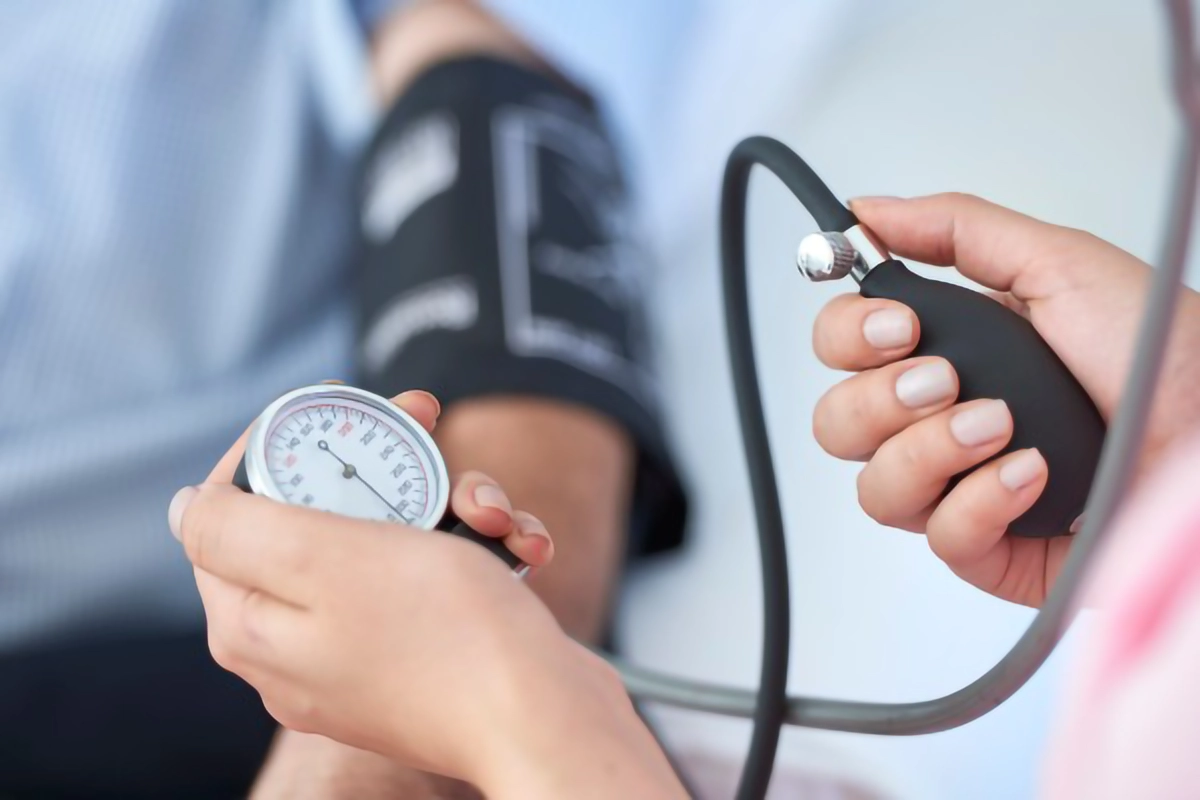We use cookies to help provide you with the best possible online experience.
By using this site, you agree that we may store and access cookies on your device. Cookie policy.
Cookie settings.
Functional Cookies
Functional Cookies are enabled by default at all times so that we can save your preferences for cookie settings and ensure site works and delivers best experience.
3rd Party Cookies
This website uses Google Analytics to collect anonymous information such as the number of visitors to the site, and the most popular pages.
Keeping this cookie enabled helps us to improve our website.
Welcome to Burdwood Surgery
Annual Health Review
Your Annual Health Review is Complete
Thank you for completing your annual Month of Birth review. We’ve reviewed your test results and re-authorised your medications, if you take any. It is important to remember that good results don't always equal good health, so please get in touch and request an appointment should you have questions or concerns. Please contact us via Reception or complete the Anima 'Follow-up appointment' request here.

Conditions We May Monitor
- High blood pressure (Hypertension)
- Heart disease and Angina (including previous heart attacks and heart failure)
- Stroke or mini-stroke (Transient Ischaemic Attack - TIA)
- Diabetes or Pre-diabetes (Non-Diabetic Hyperglycaemia)
- Chronic Kidney Disease (CKD)
- Peripheral Arterial Disease (PAD)
- Atrial Fibrillation (AF)
When to Contact a Healthcare Professional
Red
Red - Call 999 Immediately
These are emergencies - don’t wait, call 999:
- Stroke or TIA - Sudden numbness or weakness (face, arm, leg), sudden trouble speaking, sudden vision loss or blurring, sudden severe dizziness or loss of balance
- Heart disease, angina or heart failure - New or worsening severe chest pain or tightness, especially at rest or with breathlessness and not relieved with GTN spray
- Severe breathing difficulty - Unable to speak in full sentences or struggling to breathe
Amber
Amber - Contact via Anima or Call NHS 111 Urgently
Heart Disease / Angina / Heart Failure:
- Increased breathlessness or waking at night short of breath
- Increasing frequency of angina attacks, needing to use GTN spray more often
- Rapid, unexplained weight gain
- New or worsening ankle swelling
Atrial Fibrillation:
- Irregular, fast, or pounding heartbeat
- Dizziness or fainting
Hypertension:
- Home blood pressure repeatedly over 180/110
- New headaches, chest pain or nosebleeds
Diabetes:
- Feeling very thirsty and urinating more than usual
- Unexplained weight loss
- Symptoms of low or high blood sugar (confusion, shakiness, sweating, nausea)
- Vomiting, tummy pain, or drowsiness when unwell
Chronic Kidney Disease:
- New or worsening ankle swelling
- Frothy urine or much less urine than usual
- Very high or very low blood pressure
Peripheral Arterial Disease:
- Pain or cramping in legs when walking that gets better with rest
- Cold or pale feet
- Non-healing wounds or ulcers on the feet or legs
HRT (Hormone Replacement Therapy):
- Any unexpected vaginal bleeding
Green
Green
- Questions about your condition or medication
- Test results or ongoing care reviews
Request a follow-up appointment via reception, or complete the Anima follow-up here.
Lab Tests and Monitoring
Tests may have included blood pressure, HbA1c (blood sugar control), ACR (kidney function urine test), liver and kidney function, and your height height and weight. Some of these tests also help check that you can continue taking your medications safely.
Accessing Your Results
You can view your test results using the NHS App or by contacting reception for help
Sick Day Rules
If you become unwell with vomiting, diarrhoea, a high temperature, or unable to take on adequate food and fluids, you should temporarily stop taking some medicines - for example: ACE inhibitors, SGLT2 inhibitors, Diuretics (water tablets). These medicines can make dehydration or kidney problems more likely when you are unwell. You can restart them once you are feeling better and drinking fluids normally again
Pregnancy and Contraception
- If you are planning to become pregnant, please let us know. Some medications may need to be stopped or changed to protect you and your baby.
- If you are sexually active and not planning a pregnancy, discuss contraception options with us to ensure your medications and contraception work safely together.
- Keep us updated about any pregnancy status changes so we can adjust your treatment safely.
Medications used for Heart and Kidney Disease
Below are some common medications you may be prescribed for heart and kidney disease:
-
Statins (e.g., Atorvastatin, Rosuvastatin, Simvastatin): Lower cholesterol and reduce the risk of heart attacks and strokes
-
Ezetimibe: Blocks cholesterol absorption in the gut, often used alongside statins
-
Bempedoic Acid: Alternative for people who cannot take statins
-
Inclisiran: Injection given every 6 months to lower LDL cholesterol
-
ACE (angiotensin converting enzyme) inhibitors, e.g., Ramipril, Lisinopril): Lowers blood pressure, protects the heart, and slows kidney damage
-
ARBs (Angiotensin Receptor Blockers, e.g., Losartan, Candesartan): Similar to ACE inhibitors but may cause fewer side effects
-
CCBs (Calcium Channel Blockers, e.g., Amlodipine, Felodipine, Lercanidipine): lowers blood pressure, can sometimes be used to protect the heart with conditions like angina
-
SGLT2 inhibitors (e.g., Empagliflozin, Dapagliflozin): Help control blood sugar but has also been shown to protect the heart and kidneys
-
Diuretics (“water tablets,” e.g., Furosemide, Indapamide, Bendroflumethiazide): Reduce fluid build-up and lowers blood pressure

Monitoring Blood Pressure at Home
Monitoring your blood pressure at home helps manage your condition better. Ideal targets are:
- Below 135/85 mmHg if you are under 80 years old
- Below 145/85 mmHg if you are over 80 years old
- Targets may be lower if you have diabetes, kidney disease, or have had a stroke or heart attack
Useful links
Patients using diabetes and weight loss medications (GLP-1 agonists) with oral contraception or HRT
Diabetes and weight loss injections (e.g., Mounjaro, Ozempic) slow down stomach emptying. This can reduce how well oral medications - such as the contraceptive pill or HRT tablets are absorbed, potentially lowering their effectiveness
Use extra protection
- For the first 4 weeks after starting these injections - or after increasing the dose, use an additional barrier method (like condoms)
Switch to non oral contraception or HRT
- Consider options such as intrauterine devices (IUDs), implants, patches, sprays, or gels that bypass the digestive system. These don't rely on stomach absorption and are more reliable in this context
For HRT
- If your HRT includes progesterone tablets taken by mouth, talk to a us. You might be offered a higher dosage for up to 4 weeks (clinically common though not officially licensed), or switch to non oral HRT methods to protect your womb lining effectively

Reactive hypoglycaemia with GLP-1 medications
GLP-1 medications (such as Mounjaro, Ozempic, and Trulicity) help manage blood sugar levels and reduce appetite. In rare cases, they can cause blood sugar to drop too low - known as reactive hypoglycaemia. This is more likely to happen after a large meal, especially if your HbA1c blood test shows your sugars are already very well controlled.
Signs of low blood sugar may include:
- Feeling shaky, sweaty, dizzy, or anxious
- Confusion or difficulty concentrating
- Hunger or feeling suddenly unwell
What to do:
- Act fast - have something sugary straight away (e.g., 3-4 glucose tablets, a small glass of sugary drink, or 5-6 jelly babies).
- Follow up - after 10-15 minutes, have a snack containing slow-release carbohydrate (e.g., a slice of bread, a biscuit, or a glass of milk).
- Tell the surgery - let us know if this happens so we can review your treatment.
Frequently Asked Questions (FAQs)
What is QRISK, and what do the percentage numbers mean?
QRISK is a tool used to estimate your risk of developing heart disease or stroke over the next 10 years. It uses factors like your age, sex, smoking status, blood pressure, cholesterol levels, family history, and medical conditions.
- A QRISK below 10% means your risk is relatively low.
- A QRISK between 10% and 20% means your risk is moderate, we might suggest lifestyle changes or medication.
- A QRISK over 20% means you have a higher risk, and treatment like statins is usually recommended to reduce that risk.
I've been told I should take a statin or something to reduce my cholesterol?
Statins are medicines that lower your “bad” cholesterol, helping protect your heart and blood vessels. They can help reduce the chance of heart attacks and strokes, especially important if your QRISK is above 10%. Statins are generally safe and work best alongside healthy lifestyle habits.
What is cholesterol, and why is it important?
Cholesterol is a fatty substance in your blood. High levels can lead to narrowing of your arteries and increase your risk of heart attacks and strokes. Medications like statins and ezetimbe help lower cholesterol.
How can I reduce my risk of heart attack or stroke?
You can’t change your age or family history, but there are many things you can do:
-
Stop smoking - this is one of the biggest ways to reduce risk.
-
Be active – aim for at least 150 minutes of moderate activity (like brisk walking, swimming, cycling) each week.
-
Eat a heart-healthy diet – plenty of fruit, vegetables, wholegrains, nuts, and oily fish. Try to cut back on processed food, salt, and sugar.
-
Maintain a healthy weight – even small amounts of weight loss can make a difference.
-
Limit alcohol – try to keep within 14 units a week.
-
Manage blood pressure – regular checks, medication if prescribed.
-
Lower cholesterol – lifestyle helps, and you may also benefit from cholesterol-lowering medicines like statins.
-
Control diabetes – keeping blood sugar within target ranges reduces complications.
Do medicines help reduce risk?
Yes. For many people, medicines are recommended alongside lifestyle changes, such as:
-
Statins (to lower cholesterol)
-
Blood pressure tablets (if your blood pressure is high)
-
Diabetes medicines (if you have diabetes and need them)
How quickly will my risk reduce?
-
Stopping smoking reduces risk within weeks to months.
-
Blood pressure and cholesterol medicines can lower risk within the first year.
-
Healthy habits (diet, activity, weight) give benefits that build up over time.
Useful links
British Heart Foundation: Reduce your risk
What is the difference between primary and secondary prevention?
Primary prevention means preventing a disease before it happens (e.g., using medications or lifestyle changes to stop heart disease developing if you have risk factors).
Secondary prevention means preventing further problems or complications after a disease has already been diagnosed (e.g., after a heart attack or stroke).
What is HbA1c blood test?
HbA1c is a blood test that shows your average blood sugar level over the past 2–3 months. It measures how much sugar (glucose) has attached to your red blood cells.
Why is it important?
-
It helps diagnose diabetes and pre-diabetes.
-
If you already have diabetes, it shows how well your blood sugar is being controlled.
Typical ranges:
-
Below 42 mmol/mol (6.0%) → Normal
-
42–47 mmol/mol (6.0–6.4%) → At risk (pre-diabetes)
-
48 mmol/mol (6.5%) or above → Diabetes
For people with diabetes:
We will normally agree a personal HbA1c target with you (often around 48–58 mmol/mol, but this can vary). Reaching your target lowers the risk of long-term complications such as heart disease, kidney problems, eye disease, and nerve damage.
What is pre-diabetes?
Pre-diabetes means your blood sugar levels are higher than normal but not high enough for diabetes. It increases the risk of developing type 2 diabetes and heart disease. Lifestyle changes can help reduce this risk.
For information about pre-diabetes please vist Diabetes UK: Preventing T2 Diabetes
If already diagnosed with pre-diabetes we recommend you complete a free course. You can self refer here Healthier You: Self Referral
What is body mass index (BMI)?
Body mass index (BMI) is a way of checking whether your weight is healthy for your height. It is calculated by dividing your weight (in kilograms) by your height (in metres) squared.
Healthy ranges for most adults:
-
Below 18.5 → Underweight
-
18.5 to 24.9 → Healthy weight
-
25 to 29.9 → Overweight
-
30 or above → Obese
BMI is a useful guide, but it doesn’t tell the full story. For example, very muscular people may have a high BMI but little body fat. Where you carry fat also matters - carrying more around your waist can increase health risks, even if your BMI is in the healthy range.
What is waist-to-height ratio?
Waist-to-height ratio (WHtR) is a simple way of checking if you are carrying too much weight around your middle.
-
Measure your waist (around your belly button, after gently breathing out).
-
Measure your height.
-
Divide your waist measurement by your height.
Healthy ranges:
-
Less than 0.5 → Healthy
-
0.5 to 0.6 → Increased risk
-
Above 0.6 → High risk
Carrying extra fat around your waist increases the risk of conditions like heart disease, diabetes, high blood pressure, and some cancers.
I have been advised I should take an SGLT2 inhibitor, but my sugars are well controlled. Why is that?
SGLT2 inhibitors were originally developed to lower blood sugar, but research has shown they have benefits beyond diabetes control. Even if your sugars are already well managed, these medicines can help to:
-
Protect your kidneys - slowing down the progression of chronic kidney disease (CKD).
-
Protect your heart - reducing the risk of heart failure, heart attack, and stroke.
-
Lower your future risk - people with existing heart disease, CKD, or a high QRISK score may be advised to take an SGLT2i, regardless of their diabetes results.
What are sick day rules and why are they important?
Sick day rules guide you on temporarily stopping certain medications when you are unwell (vomiting, diarrhoea, fever) to avoid dehydration or kidney problems. They help prevent serious complications.
Why do I need to monitor my blood pressure at home?
Monitoring at home helps detect changes early and ensures your treatment is working. Keeping blood pressure in target ranges reduces risks of complications. More guidance is available here
I'd like help giving up smoking
If you are interested in stopping smoking, go to smokefreelifeberkshire, call 0118 449 2026, or text ‘QUIT’ to 66777
Are there apps or resources to help with healthy eating and exercise?
Yes! Some popular apps include NHS Better Health, Couch to 5K, MyFitnessPal, and Oviva. These can support weight loss, improving diet, and increasing activity.
